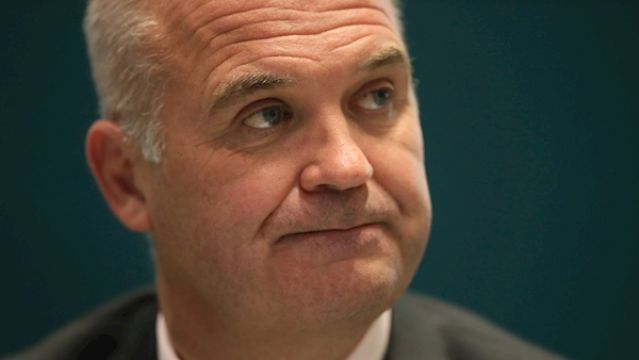The death toll in the State now stands at 1,821 from a total of 40,703 cases.
Of the new cases, 73 per cent are aged under 45, and 72 cases have been confirmed as community transmission.
Some 123 cases are located in Dublin, 107 in Cork, 42 in Meath, 36 in Kerry, 35 in Galway and the remaining 274 cases are located across 21 counties.
JtuZF
Dr Tony Holohan, chief medical officer at the Department of Health, said: “The profile of the disease continues to deteriorate. There have been an additional 32 hospitalisations and 8 ICU admissions in the past 24 hours. We are continuing to see a high number of daily cases.
“It is vital that we interrupt the transmission of the virus now.
“NPHET continues to monitor the situation however it is early, individual action that is needed to suppress the virus. Please follow public health advice and do your part to make an impact on the disease.”
In the North, 1,080 new cases of Covid-19 have been recorded in the last 24 hours, a record high for the region.
Some 5,272 cases have been reported in the last seven days, bringing the overall total number of cases confirmed in the region to 18,190.
No further deaths have been reported by the Northern Ireland Department of Health, leaving the toll at 587.
The seven-day infection rate per 100,000 in the Derry City and Strabane council area is now 824.3, among the highest in Britain and Ireland.
cAYD5
Stormont health minister Robin Swann said: “The situation is grave and getting more so, on a daily if not hourly basis.”
Significant limits on household contacts remain in place across the North.
More stringent precautions were introduced in Derry and Strabane in the northwest where the virus has raged through the community.
Mr Swann said he had been advised that further restrictions for Northern Ireland are likely to be required in the very near future, in the event of positive cases continuing their current upward trajectory.
“This will be necessary to reduce hospitalisations and loss of life and to protect our health and social care system from being overwhelmed.
“Unfortunately, as has been stated, the seasons are not in our favour, as winter leaves health and social care at its most fragile every year.”
Stormont ministers are taking into account the wider societal and economic consequences of any further regulations.
It is my view that this is the single biggest challenge facing our Executive and Assembly in the modern era of devolution
Mr Swann said: “The Executive is in effect in a double bind – wanting to protect our citizens and hospitals from the virus while seeking to prevent lasting and widespread economic damage, with all the implications that will bring for the wellbeing of individuals and communities.
“It is my view that this is the single biggest challenge facing our Executive and Assembly in the modern era of devolution.”
The estimate of the reproductive rate of the virus is between 1.3 and 1.8 for new positive tests and hospital inpatients.
Over the last week, there has been a further marked 100% increase in cases in the context of a moderate 15% increase in testing, the minister said.
Mr Swann said: “There has been a progressive rise in Covid hospital patients, which are now around 33% of peak levels during wave one.
“This trend is expected to become more pronounced in the very near future in the light of the sustained spike in new cases.”
The 5,272 new cases of the virus reported in the last seven days brings the overall tally to 18,190.







